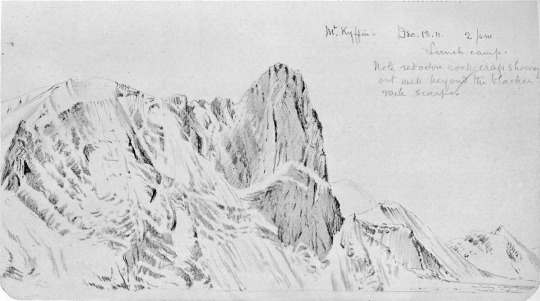#edward adrian wilson
Text
The Millennials' Polar Expedition
A year ago today (23 Nov 2022), I launched Worst Journey Vol.1 at the Scott Polar Research Institute. This is the text of the speech I gave to the lovely people who turned up to celebrate.
As many of you know, my interest in the Terra Nova Expedition was sparked by Radio 4’s dramatisation of The Worst Journey in the World, now 14 years ago. The story is an incredible story, and it got its claws into me, but what kept me coming back again and again were the people. I couldn’t believe anyone so wonderful had ever really existed. So when I finally succumbed to obsession and started reading all the books, it was the expedition members’ own words which I most cherished. These were not always easy to come by, though, so plenty of popular histories were consumed as well. Reading both in tandem, it soon became clear that, while there were some good books out there, there was a lot of sloppy research in the polar echo chamber as well.
I also discovered that no adaptation had attempted to get across the full scope of the expedition. There has never been a full and fair dramatic retelling, all having been limited by time, budget, or ideology from telling the whole story truthfully. I was determined that my adaptation would be both complete and accurate, and be as accountable as possible to those precious primary documents and the people who wrote them.
So the years of research began. I moved to Cambridge to be able to drop in at SPRI and make the most of the archives. Getting to Antarctica seemed impossible, but I went to New Zealand to get at least that much right, and on the way back stayed with relatives in Alberta, the most Antarctic place I could realistically visit. I gathered reference for objects wherever I could. Because Vol.1 takes place mainly on the Terra Nova, which is now a patch of sludge on the seabed off Greenland, I cobbled together a Franken-Nova in my mind, between the Discovery up in Dundee and the Star of India in San Diego. I spent a week on a Jubilee Sailing Trust ship in order to depict tall-ship sailing correctly. I’m sure I’ve still got loads of things wrong, but I did all I could, to get as much as I could, right.
But still, everyone I met who had been to Antarctica said, “you can’t understand Antarctica until you’ve been there, and you can’t tell the story without understanding Antarctica; you have to go.” So I applied to the USAP’s Antarctic Artists and Writers Program, with faint hope, as they do “Ahrt” and I draw cartoons. But I must have blagged a good grant proposal, because a year after applying, I was stepping out of a C-17 onto the Ross Ice Shelf. The whole trip would have been worth it just to stand there, turn in a circle, and see how all the familiar photographs fit together. But the USAP’s generosity didn’t stop there, and in the next month I saw Hut Point, Arrival Heights, the Beardmore Glacier (including the moraine on which the Polar Party stopped to “geologise”), and Cape Crozier, and made three visits to the Cape Evans hut. Three! On top of the visual reference I got priceless qualitative data. The hardness of the sound. The surprising warmth of the sun. The sugary texture of the snow. The keen edge on a slight breeze. The way your fingertips and toes can start to go when the rest of you is perfectly warm. The SHEER INSANITY of Cape Crozier. The veterans were right – I couldn’t have drawn it without having been there, but now I have, and can, and I am more grateful than I can ever adequately express. With all these resources laid so copiously at my feet, all I had to do was sit down and draw the darn thing. Luckily I have some very sound training to back me up on that.
Now, this is all very well for the how of making the book, and, I hope, interesting enough. But why? Why am I putting so much effort into telling this story, and why now?
Well, it means a lot to me personally. To begin to understand why, you need to know that I grew up in the 80s and 90s, at the height of individualist, goal-oriented, success-driven, dog-eat-dog, devil-take-the-hindmost neoliberalism. It was just assumed that humans, when you get right down to it, were basically self-interested jerks, and I saw plenty of them around so I had no reason to question this assumption. The idea was that if you did everything right, and worked really hard, you could retire at 45 to a yacht in the Bahamas, and if you didn’t retire to a yacht, well, you just hadn’t tried hard enough. Character, in the sense of rigorous personal virtue, was for schmucks. What mattered was success. Even as my politics evolved, I still took it as a given that this was how the world worked, and that was how people generally were – after all, there was no lack of corroborating evidence. So: I worked really hard. I single-mindedly pursued my self-interest. I made sacrifices, and put in the time, and fought my way into my dream job and all the success I could have asked for.
And then I met the Terra Nova guys.
What struck me most about them was that even when everything was going wrong, when their expectations were shattered and they had to face the cruellest reality, they were still kind. Not backbiting, recriminating, blame-throwing, defensive, or mean, as one would expect – they were lovely to each other, patient, supportive, self-sacrificing; in fact the worse things got, the better they were. They still treated each other as friends even when it wasn’t in their self-interest, was even contrary to their self-interest. I didn’t know people could be like that. But there they were, in plain writing, being thoroughly, bafflingly, decent. Not just the Polar Party – everyone had to face their own brutal realities at some point, and they all did so with a grace I never thought possible.

It presented a very important question:
When everything goes belly-up, and you’re facing the worst, what sort of person will you be?
Or perhaps more acutely: What sort of person would you rather be with?
It was so contrary to the world I lived in, to the reality I knew – it was a peek into an alternate dimension, populated entirely with lovely, lovely people, who really, genuinely believed that “it’s not whether you win or lose, but how you play the game,” and behaved accordingly. It couldn’t be real. There had to be a deeper, unpleasant truth: that was how the world worked, after all. I kept digging, expecting to hit bottom at some point, but I only found more gold, all the way down. How could I not spend my life on this?
Mythology exists to pass on a culture’s values, moral code, and survival information – how to face challenges and prevail. Scott’s story entered the British mythology, and had staying power, because it exemplified those things so profoundly for the culture that created and received it. But the culture changed, and there were new values; Scott’s legacy was first inverted and then cast aside. The new culture needed a new epic hero. You’d think it would be Amundsen, the epitome of ruthless success, but “Make Plan – Execute Plan – Go Home” has no mythic value, so he didn’t stick. The hero needed challenges, he needed setbacks, and he needed to win, on our terms.
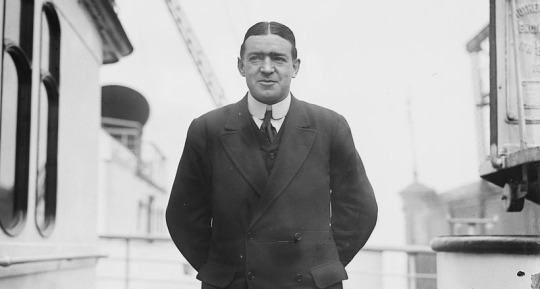
Shackleton! Shackleton was a winner! Shackleton told us what we knew to be true and wanted to hear at epic volume: that if you want something badly enough, and try really hard, you will succeed! (Especially if you can control the narrative.) Scott, on the other hand, tells us that if you want something badly enough, and try really hard . . . you may nevertheless die horribly in the snow. Nobody wants to hear that! What a downer! I think it’s no coincidence that Shackleton exploded into popular culture in the late 90s and has dominated it ever since: he is the mythic hero of the zeitgeist. I am always being asked if I’ll be doing Shackleton next. He has six graphic novels already! That is plenty! But people still want to tell and be told his story, because it’s a heroic myth that validates our worldview.
That’s why I am so determined to tell the Scott story, because Scott is who we don’t realise we need right now – and Wilson, and Bowers, and Cherry, and Atch, and all the rest. The Terra Nova Expedition is the Millennials’ polar expedition. We’ve worked really hard, we’ve done everything we were supposed to, we made what appeared to be the right decisions at the time, and we’re still losing. Nothing in the mythology we’ve been fed has prepared us for this. No amount of positive attitude is going to change it. We have all the aphorisms in the world, but what we need is an example of how to behave when the chips are down, when the Boss is not sailing into the tempest to rescue us, when the Yelcho is not on the horizon. When circumstances are beyond your power to change, how do you make the best of your bad situation? What does that look like? Even if you can’t fix anything, how do you make it better for the people around you – or at the very least, not worse? Scott tells us: you can be patient, supportive, and humble; see who needs help and offer it; be realistic but don’t give in to despair; and if you’re up against a wall with no hope of rescue, go out in a blaze of kindness. We learn by imitation: it’s easy to say these things, but to see them in action, in much harder circumstances than we will ever face, is a far greater help. And to see them exemplified by real, flawed, complicated people like us is better still; they are not fairy-tale ideals, they are achievable. Real people achieved them.
My upbringing in the 80s milieu of selfishness, which set me up to receive the Scott story so gratefully, is hardly unique. There are millions of us who are hungry for a counter-narrative. My generation is desperate for demonstrations of caring, whether it’s activism or social justice or government policies that don’t abandon the vulnerable. We’ve seen selfishness poison the world, and we want an alternative. The time for competition is past; we must cooperate or perish, but we don’t know how to do it because our mythology is founded on competition. The Scott story, if told properly, explodes the Just World Fallacy, and liberates us from the lie that has ruled our lives: that you make your own luck. What happens, happens: what matters is how you respond to it. My obsession with accuracy is in part to honour the men, and in part because Cherry was the ultimate stickler and he’d give me a hard time if I didn’t, but also because, if I’m telling the story to a new generation, I’m damn well going to make sure we get that much RIGHT. It’s been really interesting to see, online, how my generation and the next have glommed onto polar exploration narratives, not as thrilling feats of derring-do, but as emotional explorations of found family and cooperative resilience. We love them because they love each other, and loving each other helps get them through, and we want – we need – to see how that’s done. It’s time to give them the Terra Nova story, and to tell it fully, fairly, and honestly, in all its complexity, because that is how their example is most useful to us. Not as gods, and not as fools, but as real human beings who were excellent to each other in the face of disaster. I only hope that I, a latecomer to their ways, can do them justice.
#scott expedition#terra nova expedition#the worst journey in the world#captain scott#polar party#robert falcon scott#birdie bowers#edward adrian wilson#bill wilson#character#millennials#polar exploration#heroic age#adventure#sociology#neoliberalism
191 notes
·
View notes
Text
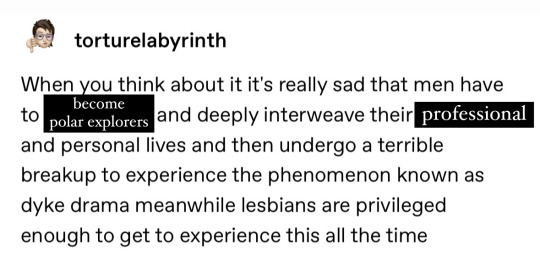


#sorry for this.#iykyk#ernest shackleton#robert falcon scott#edward adrian wilson#TFW SCOTT KEPT WILSON IN THE DIVORCE
941 notes
·
View notes
Text

一些之前做的亚克力……(为什么没有阿蒙森 因为厂家忘了发货给我
is Wild Shackleton Scott Wilson(well Discovery
some I have made for the polar explorers...(Amundsen was forgot by the store......he will coming soon
#ernest shackleton#robert falcon scott#Frank Wild#Edward Adrian Wilson#polar exploration#polar explorers#discovery expedition
26 notes
·
View notes
Text
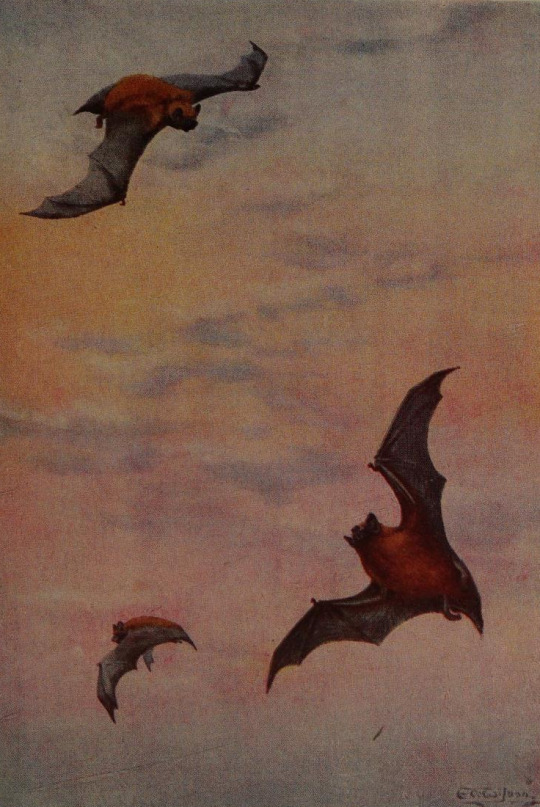
Wild Animals in Britain. Written by Frances Pitt. Illustration by E. A. Wilson. 1944.
336 notes
·
View notes
Text
Happy polar party reaches the South Pole (a month after Amundsen) Day.

(We do not talk about what became of the polar party after they reached they pole on polar party pole day)
#polar party pole day#terra nova expedition#polar expedition#edward adrian wilson#birdie bowers#edgar evans#robert falcon scott#l.e.g. Oates#polar expedition fandom
6 notes
·
View notes
Text
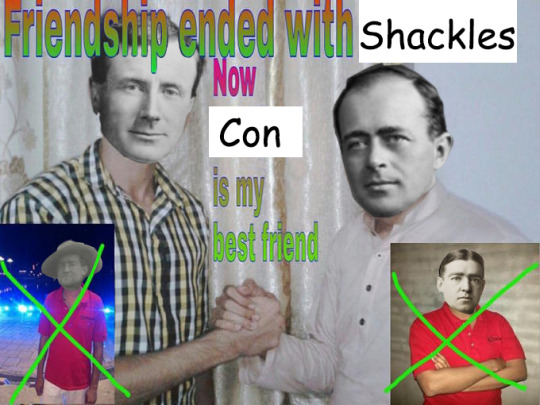
british national antarctic expedition (1901-1904)
#edward adrian wilson#robert falcon scott#ernest shackleton#discovery expedition#polar exploration#starting off the new tumblr with a bang lads
52 notes
·
View notes
Text
Dr Edward Adrian Wilson

“Words must always fail me when I talk of Bill Wilson. I believe he really is the finest character I ever met – the closer one gets to him the more there is to admire. . . . Whatever the matter, one knows Bill will be sound, shrewdly practical, intensely loyal and quite unselfish. . . . I think he is the most popular member of the party, and that is saying much.”
— Capt. Scott, in a letter dated 22 Oct 1911
He was christened Edward, and his family called him Ted – the fifth child, eventually of ten, of Dr. Wilson of Cheltenham. Even in early childhood he showed an aptitude for natural history and drawing, and his father encouraged both, allowing him to roam all over the Cotswolds and South Wales, observing animals, collecting specimens, and sketching them. He attended Cheltenham College where he was secretary of the ornithology branch of the Natural History Society, then was accepted into Cambridge to follow in his father's footsteps into medicine. This he did, his very hard work interspersed with regular rowing practice and at least one illicit pre-dawn excursion for trout fishing, but his gruelling work ethic and compulsion to push himself to his limit eventually backfired: while a trainee at St George's Hospital in London, he came down with tuberculosis.

At first it was thought that he needed simply a break from work and smog, so he went to stay with friends in Norway for a while. However, with mountains to climb and vistas to paint and miles of rugged countryside to be tramped over, this only gave young Wilson a greater opportunity for exertion, so he was sent to a sanatorium in Davos, Switzerland, where the medical staff could limit his range. Being cooped up sent him into a depression, but the enforced rest gave him the opportunity to correspond with a young lady he had met in London, Oriana Souper, and their relationship grew from kindred spirits to something rather more substantial.

He returned to England much improved in health, though his doctor advised he resign himself to a quiet life. Of course this was eschewed. “I can't bear people who always take for granted that one's main object is to save up one's health and strength, eyesight and what not, for when one is sixty. How on earth can they tell whether one is going to reach thirty?” Wilson threw himself back into medical studies and got his MD. In the midst of this, he was encouraged to apply for the post of Junior Surgeon and Zoologist on the upcoming Discovery Expedition. Despite his reservations – aside from his health, he and Oriana had got engaged, and he didn't think his artistic skills were sufficient to be considered in that capacity – the decision-makers liked him and offered him the post. He took it.

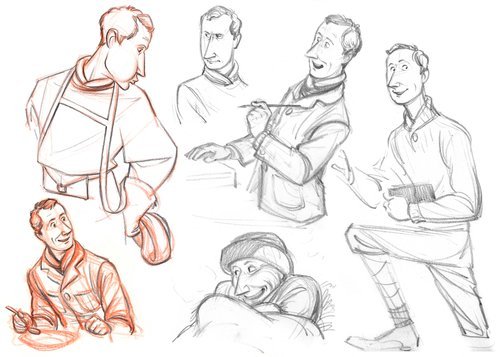
The Discovery left London in August of 1901, three weeks after Edward and Oriana were married. Wilson was well-loved by his crewmates, who enjoyed his wry humour as much as his drawings, and it was here he got the nickname “Bill.” Wilson himself was particular friends with Ernest Shackleton, and both got along well with the expedition's commander, Robert Falcon Scott. So when Scott set out to push into the continent's interior, it was Wilson and Shackleton he took along.
To keep a long story short, by the time the three returned to the ship (all with scurvy), Wilson was better friends with Scott than with Shackleton. The latter was in such bad shape that he was invalided home, while Wilson and Scott stayed another year. When the Discovery finally returned to civilisation, the friendship between Wilson and Scott had been firmly cemented.
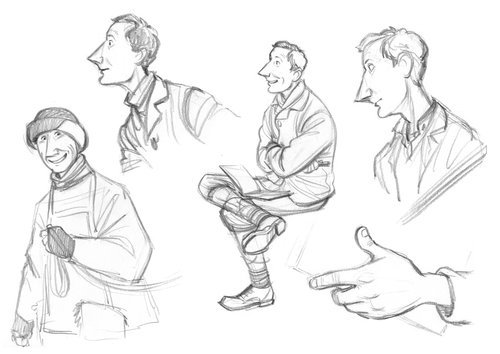
To celebrate their reunion, Dr and Mrs Wilson embarked on several years travelling up and down the country investigating causes of a disease afflicting red grouse. Shackleton invited Wilson to join him on his Nimrod Expedition; Wilson said he was busy. However, on one trip to Scotland he reconnected with Scott and they started devising plans for another trip to the Antarctic; on another he met Apsley Cherry-Garrard, who he would recommend to that expedition.

Once again the Wilsons parted, when the Terra Nova left Cardiff in June of 1910, though they had a brief reunification between South Africa and New Zealand before being parted for real in November. This time Dr Wilson was head of the scientific staff, and as the eldest member thereof, was dubbed Uncle Bill. As before, he was rapidly beloved by all who sailed with him, perhaps even more so than on the Discovery since he was nine years wiser and kinder. His friendship with Scott also made him the communicator between the young scientists and the sometimes aloof leader – if you wanted to say something to Scott, it was much easier to relay it through Wilson. His talents as confidant and peacemaker – and also, probably, his involvement in selecting the scientific staff in the first place – were largely responsible for the first year of the Terra Nova Expedition being remarkably convivial.

One big reason Wilson had been keen to go south again was to acquire some Emperor penguin embryos, which could only be done while the eggs were being incubated in the winter. On the Discovery Expedition, they located an Emperor rookery at Cape Crozier, on the western end of Ross Island; when conditions prevented them setting up base there in January 1911, it necessitated a midwinter journey the following June. Wilson and Cherry-Garrard had already planned to do this together, and agreed Bowers was the obvious choice for the third. They set off a few days after the Midwinter feast and endured five weeks of almost unimaginably arduous conditions, culminating in a hurricane-force blizzard on Wilson's birthday which blew their tent away. Miraculously, they made it back to base mostly unharmed and with three whole Emperor eggs. It was this journey that gave Cherry the title for his book, The Worst Journey in the World.
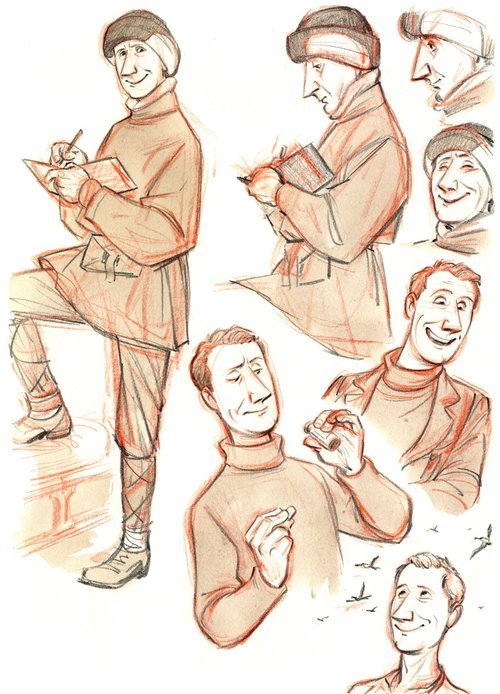
A few months later, they were on the trail again, this time partly retracing the route travelled by Wilson, Scott, and Shackleton in Discovery times, as they trekked to the South Pole. On top of his services as an experienced and capable sledger, Wilson also contributed sketch after sketch of the mountains up the Beardmore Glacier, often battling through snowblindness to do so. To no one's surprise, he was selected for the final Polar Party, and of the three journals kept by that party, his is the least bothered by finding they'd been beaten to their goal – “We want the Scientific work to make the bagging of the Pole merely an item in the results,” he had written to his father in 1909, and this attitude was more than just a pose.

Things started going wrong even before they turned back north. Taff Evans had injured his hand in modifying their sledge and disclosed this after leaving the Pole, when infection had already set in. Wilson, as doctor, tended it as best he could, and the frostbites that Evans was prone to. Then Wilson himself strained a tendon in his leg, which took several days to recover well enough to get back in harness. Evans' condition kept deteriorating, and despite Wilson's best efforts, he died at the bottom of the glacier. When they failed to find the warmer temperatures they were expecting back at sea level, it was Oates' frostbite that took Wilson's time and attention – that was also revealed too late, and got worse quickly. On March 11th, Scott “practically ordered Wilson to hand over the means of ending our troubles to us, so that anyone of us may know how to do so. Wilson had no choice between doing so and our ransacking the medicine case.” Oates let Antarctica do the dirty work for him, and eventually the remaining three decided to do the same, but not before pushing themselves as far as they could go.
Even after the remaining three were pinned down by a blizzard, Wilson was determined to go on, being prepared to make an attempt with Bowers to reach the next depot and bring back some food and fuel – a round trip of 22 miles for two men already at the limit of their endurance. Both seemed to expect they would die on the way, which may explain why they never left – leaving Scott to die alone would have been a greater strain on them morally than the journey would have been physically. Wilson kept his equanimity to the end: Scott wrote a very moving letter to Oriana, apologising for getting her husband into this mess and telling her of the “comfortable blue look of hope” in his eyes, “and his mind is peaceful with the Satisfaction of his faith in regarding himself as part of the great scheme of the almighty. I can do no more to comfort you than to tell you that he died as he lived a true brave man – the best of comrades and staunchest of friends.”
Sources
Cheltenham in Antarctica by D.M. Wilson (great-nephew) and D.B. Elder
The Last Letters by the Polar Party, ed. Heather Lane, Naomi Boneham, and Robert D. Smith
A note on the drawings: The pages you see here span about a year and a half. Wilson is my favourite, so I get worked up about getting him right, and then can't draw at all. What I ought to do is take him to the pub and unwind, but what I actually do is give up and take another stab a few months later, usually in a situation bereft of reference. Despite all this, in retrospect I think some progress has been made...?
#bill wilson#edward adrian wilson#terra nova expedition#scott expedition#polar history#biography#character design#drawings#character
61 notes
·
View notes
Text
A lovely write-up of another polar fan's Billgrimage!
5 notes
·
View notes
Text
I wrote another polar vampire story, woo!
Apsley Cherry-Garrard/Robert Falcon Scott/Edward Adrian Wilson, E, 5952 words
A collection of documents relating to the return of Captain Scott and his companions from the South Pole in the spring of 1912. Something is different about them.
#polar exploration#antarctic explorers#terra nova expedition#robert falcon scott#Edward Adrian Wilson#Apsley Cherry-Garrard#Worst Journey in the world#My fic#Vampires#dracula daily#favourite dracula
4 notes
·
View notes
Text
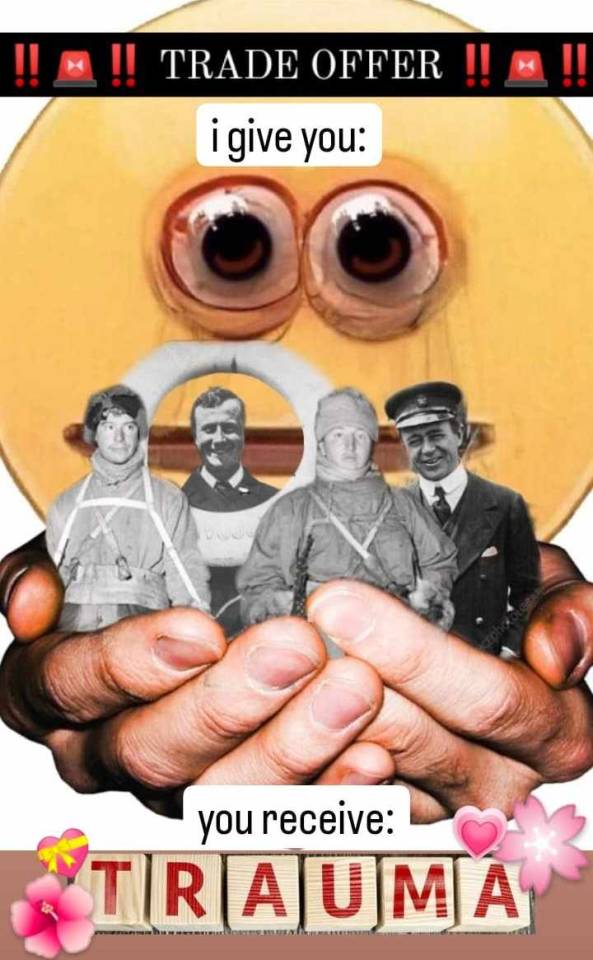
‼️🚨‼️‼️🚨‼️‼️
#polar expedition#polar exploration#polar explorers#terra nova#terra nova expediton#edward adrian wilson#edward wilson#apsley cherry garrard#cherry#robert falcon scott#scott#henry robertson bowers#henry bowers#birdie#cool guys#antarctica
0 notes
Text
I’ve been watching theories and explanations of ‘Asteroid City’ and in my opinion the views that people have are completely wrong, so I’m going to explain the meaning of it, or what the meaning is in my perception.
Now, I’ll start off with the fact that one person claimed that Wes Anderson films have little meaning and value aesthetics above the story, which he’s tried to counteract by making a purposefully meaningless story in Asteroid.
No. Just no.
Every Wes Anderson film, as I see it, is used to display a certain type of relationship. The Grand Budapest Hotel shows the friendship between the Mr Gustave and Zero. The Darjeeling limited shows the relationship of the three brothers. Moonrise kingdom shows the relationship of the two children in their young love, I could go on with every film but you get the point.
The person was correct that yes, this film is slightly different to the others, it doesn’t display the relationship between people as they’re together, it more shows how relationships are everlasting through feelings of grief. Particularly the grief of the actors for the playwright, which is represented through their characters.
It’s true that the film has a sense of meaningless to it, but this is used to display the meaningless feel of death, how no one can comprehend the incomprehensible. They try to understand the alien, which even we don’t know anything about and they never can, much like how us as humans will never truly understand grief.
The meaningless is reflected through the character of Augie (played by Jason Schwartzman) who tells the director that he still doesn’t understand the play. It is no coincidence that this is also the person who had a relationship with the playwright, who died. These two are interlinked because much like the way that he doesn’t understand the okay, he doesn’t understand the grief that he’s feeling.
What I’m trying to say is that Wes Anderson has clearly thought out his films thoroughly and filled them with meaning and to say that every film is entirely meaningless is completely wrong. Rant over.
#Wes Anderson#asteroid city#the grand budapest hotel#moonrise kingdom#Darjeeling limited#Owen wilson#Adrian brody#weird to think I started this account about the marauders and here I am ranting about some random film#woah#jason schwartzman#edward norton#wes anderson films
116 notes
·
View notes
Text

Going hard for the dramatic irony feels in Worst Journey, Vol.1.
Oh look, they're having such a nice time. Poor, poor darlings.
(Get Vol.1 here! Or stay tuned for further distribution opportunities!)
#the worst journey in the world#twjitw#apsley cherry-garrard#bill wilson#edward adrian wilson#sailing#tall ship#birdwatching#feels#illustration#graphic novel#history comics#polar exploration
120 notes
·
View notes
Text
Antarctic explorers’ drawings of penguins
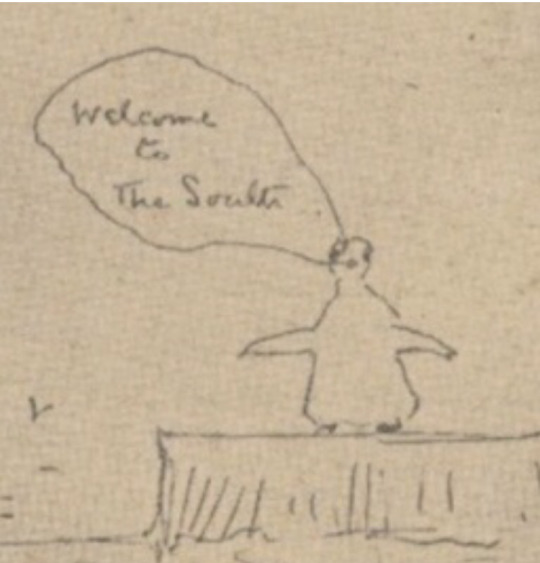
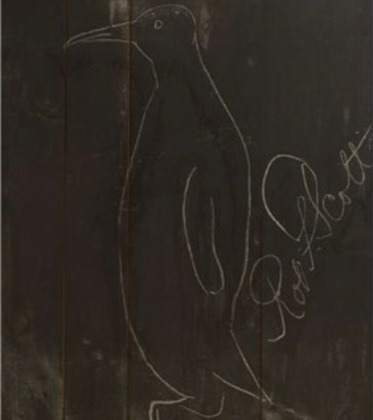
Robert Falcon Scott. Hilarious. 7/10 for the first one because he is so friendly, 5/10 for the second.
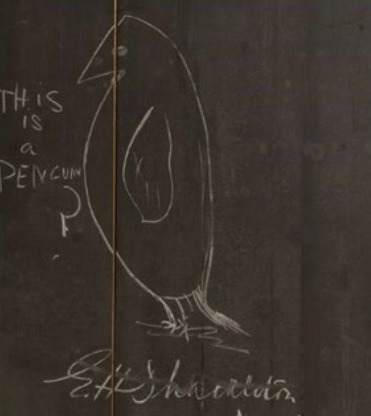
Ernest Shackleton. What an angular & compact little guy. 5/10
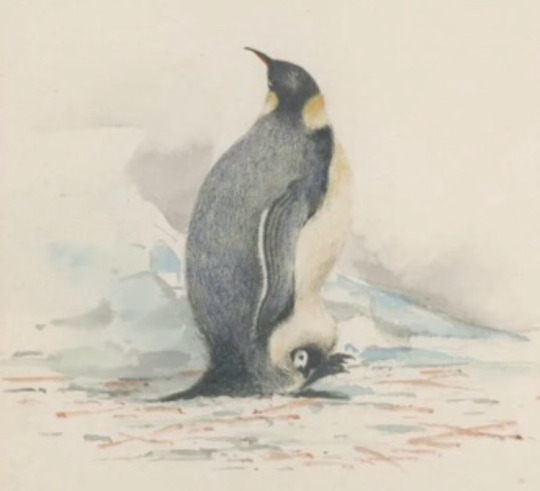
Edward Adrian Wilson. Shut the fuck up Bill, we know you’re an incredible artist. 10/10, obviously
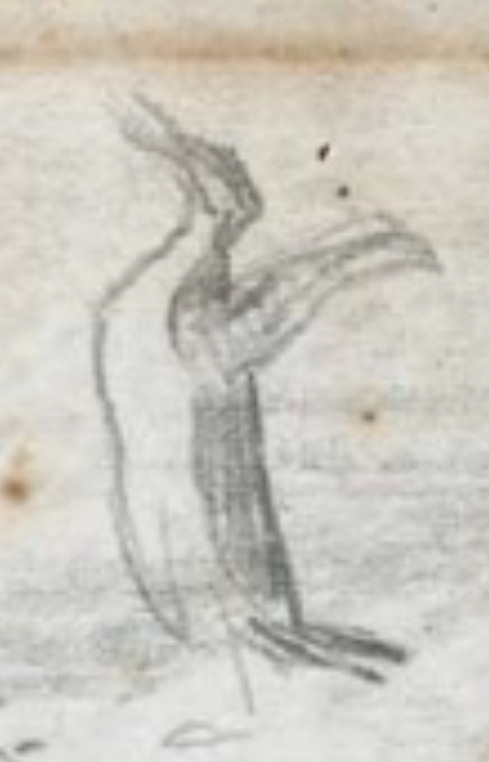
George Marston. I mean that’s a solid penguin right there. 8/10
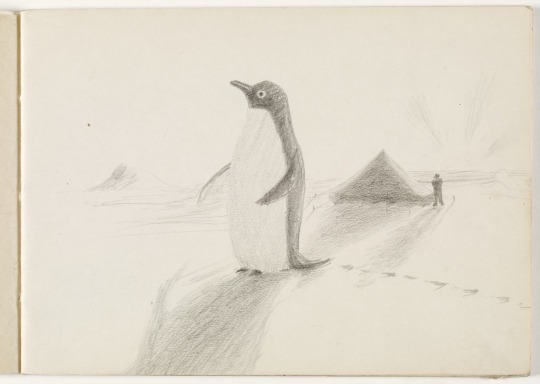
Frank Worsley. Oh Wuzzles…..the composition of this is stellar. Wuzzpeng you will always be famous 9/10.

Apsley Cherry-Garrard. The cutest thing I’ve ever seen in my life, every time I lay eyes on it I tear up. I fully acknowledge my bias but 11/10.
#polar exploration#AS HAS BEEN SAID WISELY BEFORE an explorer’s penguin drawing is really a reflection of the self. so that’s why cherry ranks so high. sorry#he’s my babygirl <3
9K notes
·
View notes
Text
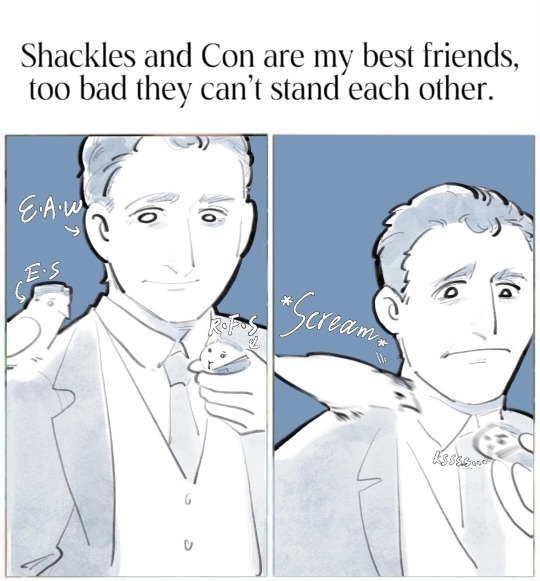
Con...*gently hold* *eat it* now friendship with shackles end up
#polar explorer#polar exploration#polar expedition#Edward Adrian Wilson#robert falcon scott#ernest shackleton
24 notes
·
View notes
Note
any shrews?

Edward Adrian Wilson (1872-1912)
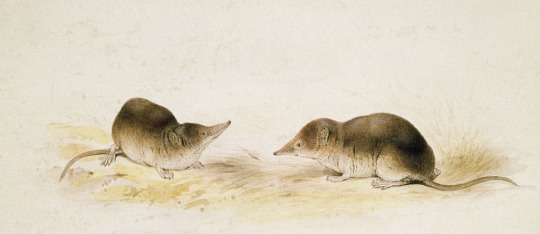
Edward Lear (1812-1888)
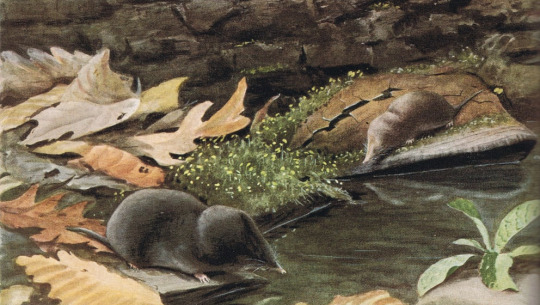
Louis Agassiz Fuertes (1874-1927)
#eulipotyphla#shrews#Edward Adrian Wilson#Edward Lear#Louis Agassiz Fuertes#replies#requests#megatheria
156 notes
·
View notes

